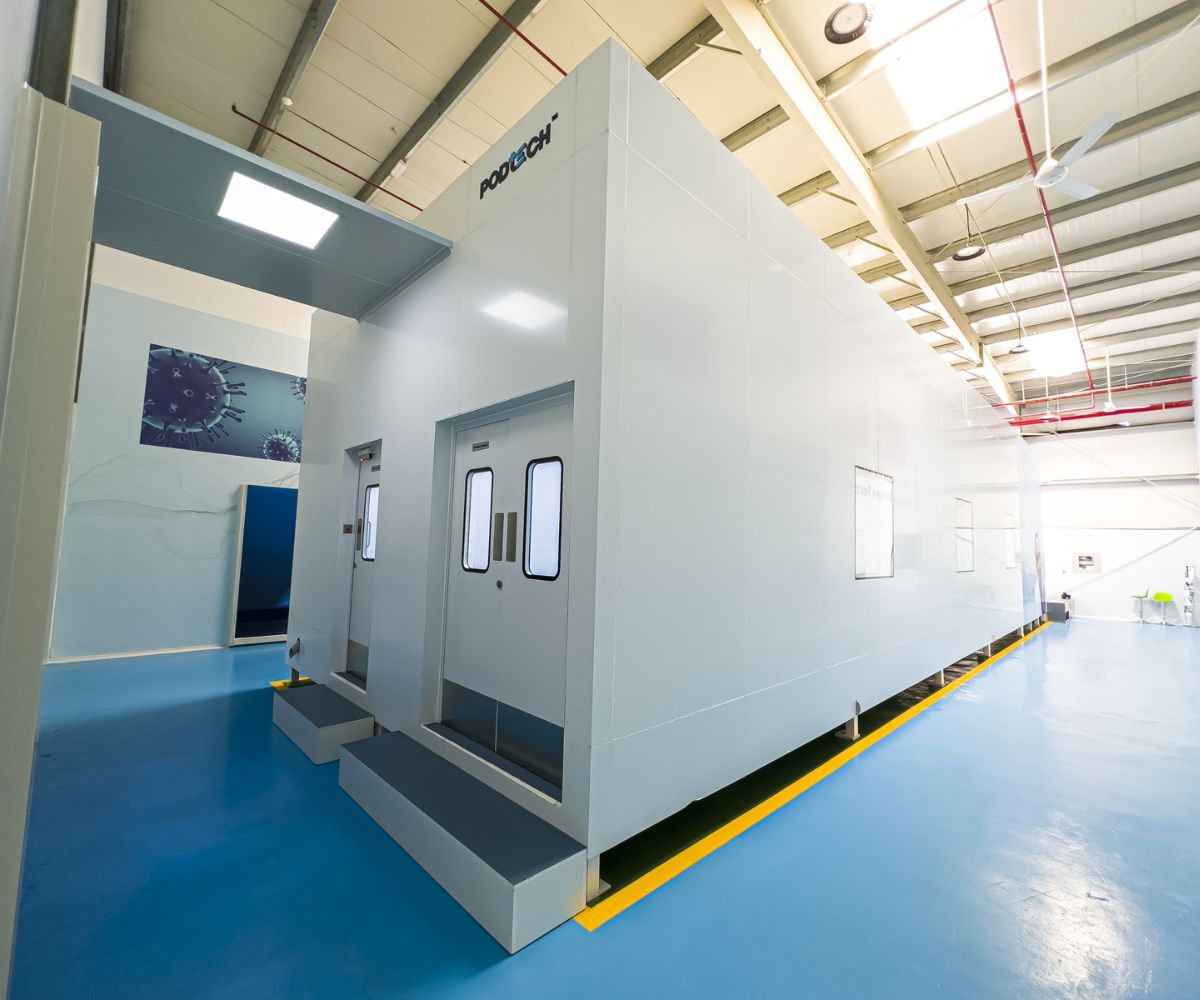
In industries where precision, contamination control, and environmental stability are critical, modular cleanroom systems are revolutionizing the landscape. These innovative systems offer unparalleled flexibility, cost-effectiveness, and efficiency, making them an essential choice for businesses in sectors like pharmaceuticals, electronics, healthcare, and biotechnology.
What Are Modular Cleanroom Systems?
Modular cleanroom systems are prefabricated structures designed to create controlled environments for sensitive operations. Unlike traditional cleanrooms, modular cleanrooms can be quickly assembled, reconfigured, or relocated to meet changing requirements. These systems consist of interlocking panels, customizable features, and advanced air filtration mechanisms that ensure compliance with stringent industry standards.
Advantages of Modular Cleanroom Systems
Flexibility and Scalability
Modular cleanroom systems are highly adaptable. Their panelized construction allows for easy modifications, expansions, or relocations without significant downtime. Whether you need a small ISO Class 8 cleanroom or a large ISO Class 5 facility, modular solutions can be tailored to meet your exact specifications.
Cost-Effectiveness
Traditional cleanrooms often require substantial investments in construction and maintenance. In contrast, modular cleanrooms are cost-efficient due to their prefabricated components and reduced construction time. They also minimize operational disruptions, saving both time and money.
Faster Deployment
Modular cleanroom systems can be installed in a fraction of the time required for conventional cleanrooms. Their prefabricated nature and streamlined installation process make them an ideal choice for projects with tight deadlines.
Compliance with Industry Standards
These systems are designed to meet stringent industry regulations, including ISO 14644 and GMP (Good Manufacturing Practice) standards. Advanced air filtration systems, such as HEPA and ULPA filters, ensure optimal cleanliness levels for various applications.
Eco-Friendly Solutions
Modular cleanroom systems are more sustainable than traditional builds. They use fewer materials, generate less waste, and can be disassembled and reused, reducing their environmental impact.
Key Components of Modular Cleanroom Systems
Wall and Ceiling Panels
The backbone of modular cleanrooms, these panels are typically constructed from materials like stainless steel, aluminium, or high-pressure laminate. They are designed for durability, ease of cleaning, and resistance to microbial growth.
Air Filtration Systems
High-efficiency particulate air (HEPA) filters and ultra-low particulate air (ULPA) filters are integral to maintaining air purity. These systems remove contaminants as small as 0.1 microns, ensuring optimal environmental conditions.
HVAC Systems
Heating, ventilation, and air conditioning systems regulate temperature, humidity, and airflow. Properly designed HVAC systems are critical for maintaining the integrity of controlled environments.
Flooring
Modular cleanrooms often feature seamless, anti-static flooring to minimize particle accumulation and facilitate cleaning. Common materials include epoxy, vinyl, and polyurethane.
Lighting Systems
LED lighting is a popular choice for modular cleanrooms due to its energy efficiency and ability to provide uniform illumination without generating excessive heat.
Monitoring Systems
Advanced monitoring systems track environmental parameters such as temperature, humidity, and particulate levels. These systems provide real-time data to ensure compliance and prevent contamination.
Applications of Modular Cleanroom Systems
Pharmaceuticals and Biotechnology
Pharmaceutical manufacturing requires stringent contamination control. Modular cleanrooms provide the ideal environment for processes like drug formulation, packaging, and testing, ensuring compliance with GMP standards.
Electronics Manufacturing
The production of semiconductors, microchips, and other electronic components demands ultra-clean environments. Modular cleanrooms maintain the high cleanliness levels necessary for these processes.
Healthcare and Medical Devices
From surgical instrument manufacturing to laboratory testing, modular cleanrooms are indispensable for maintaining sterile conditions in healthcare-related applications.
Aerospace and Defense
Precision engineering in the aerospace and defence sectors often requires cleanroom environments. Modular systems offer the flexibility and reliability needed for such high-stakes projects.
Research and Development
R&D facilities benefit from the adaptability of modular cleanrooms, allowing scientists to conduct experiments in controlled settings while easily reconfiguring spaces as research needs evolve.
Customizing Your Modular Cleanroom System
One of the greatest advantages of modular cleanrooms is their ability to be customized. Businesses can choose from a variety of options to meet specific requirements:
- Size and Layout: Customizable dimensions and configurations.
- Cleanroom Class: ISO classifications ranging from Class 1 to Class 8.
- Specialized Features: Options such as anti-static coatings, chemical-resistant surfaces, and explosion-proof designs.
- Additional Equipment: Integration of fume hoods, biosafety cabinets, and pass-through chambers.
Choosing the Right Modular Cleanroom Provider
When selecting a modular cleanroom system, partnering with a reliable provider is crucial. Look for companies with a proven track record, industry certifications, and a comprehensive portfolio of successful projects. Consider factors like:
- Experience and Expertise: Years of experience in designing and installing modular cleanrooms.
- Quality Assurance: Commitment to meeting and exceeding industry standards.
- Customer Support: Availability of maintenance, training, and technical support services.
The Future of Modular Cleanroom Systems
As industries evolve, so do the demands for controlled environments. Modular cleanroom systems are at the forefront of this evolution, offering innovative solutions to meet the challenges of modern manufacturing and research. Their versatility, cost-efficiency, and compliance with stringent standards make them an indispensable asset in today’s competitive landscape.





Leave a Reply